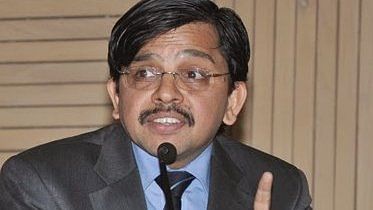New Delhi: The Supreme Court Collegium led by Chief Justice of India S.A. Bobde has recommended the transfer of the third senior-most judge of the Delhi High Court, Justice S. Muralidhar, to Punjab and Haryana High Court.
Justice Muralidhar’s transfer was discussed twice earlier too. But it was halted after several SC judges spoke against it.
The top court collegium had first discussed a proposal to transfer Muralidhar in December 2018 and then again in January 2019.
On both the occasions, the proposal was shot down after judges in the collegium — led by then Chief Justice of India Ranjan Gogoi — advised against it.
In a statement, the Delhi High Court Bar Association Wednesday expressed “shock” over Muralidhar’s transfer recommendation and “unequivocally and in the strongest possible terms” condemned it.
“The transfer will be a great loss to our institution,” said the association.
Collegium recommended transfer of 2 more justices
The court also recommended the transfer of Justice Ranjit More of Bombay High Court to Meghalaya High Court and Justice Ravi Vijaykumar Malimath of Karnataka High Court to Uttarakhand High Court.
The recommendations were finalised on 12 February.
Last week, Justice Satyaranjan Dharmadhikari, who was the second senior-most judge of the Bombay HC, tendered his resignation, saying that he does not want to be transferred out of Maharashtra due to his “personal and family” reasons.
After Dharmadhikari’s resignation, More became the second senior-most judge.
Also read: SC wanted to transfer Delhi HC judge, but put it on hold after dissent in collegium
Recommendations to now get nod from Law Ministry
The recommendations of the SC collegium will now have to be approved by the Law Ministry. If the government sends it back, the collegium has the option to reiterate its decision.
Muralidhar and the other two justices have the option of requesting the collegium to reconsider its decision.
Last year, Chief Justice of Madras High Court Justice Vijaya Kamlesh Tahilramani had requested the SC collegium to reconsider its decision of transferring her to Meghalaya High Court. But the top court declined to reconsider it, following which Tahilramani resigned.
Muralidhar’s ‘bold verdicts’
Justice Muralidhar was appointed as a judge of the Delhi High Court in 2006. He is slated to retire in 2023 when he will turn 62.
In the Delhi bar associations, Muralidhar is often referred to as the judge who delivered “bold verdicts”.
Justice Muralidhar was the one who had convicted members of the Uttar Pradesh Provincial Armed Constabulary (PAC) in the Hashimpura massacre case and Congress leader Sajjan Kumar in the 1984 anti-Sikh riots case.
Muralidhar was part of the Delhi High Court bench that had first decriminalised homosexuality in the 2009 Naz Foundation case.
Justice Muralidhar was also a part of the full bench in 2010 that ruled in favour of a petitioner who had filed an RTI, seeking information from the Supreme Court registry on how many judges had declared their assets.
He is also among the few judges, who have done away with the convention of judges being addressed as ‘My Lord’ or ‘Your Lordship’. In fact, the high court registry makes a special mention of this in his cause-list.
His verdicts
In the judgment indicting Sajjan Kumar, Justice Muralidhar had noted that there was “a familiar pattern of mass killings in Mumbai in 1993, in Gujarat in 2002, in Kandhamal, Odisha, in 2008, in Muzaffarnagar in UP in 2013” where minorities were being targeted and the attacks were being “spearheaded by the dominant political actors being facilitated by the law enforcement agencies”.
“The criminals responsible for the mass crimes have enjoyed political patronage and managed to evade prosecution and punishment,” he further wrote.
In 2018, the judge also set aside the transit remand issued against activist Gautam Navlakha, who was linked to the violence in Bhima Koregaon. Questioning the legality of Navlakha’s arrest, the high court noted that every minute a person remains in custody was a matter of concern.
Muralidhar in 2018 also headed the bench that junked a plea filed by BJP leader Subramanian Swamy, seeking an independent probe in the Sunanda Pushkar case.
“The court is left with a distinct impression… that this is perhaps a textbook example of a ‘political interest litigation’ dressed up as a PIL,” the bench had then said.
Also read: Bar Council asks Modi for Rs 50,000-crore allocation in Budget for lawyers’ welfare




once hindu rastra comes, again all backward class, dalits will become slaves of brahmans.. pathetic that these people(OBC/Dalits) digging their own grave by supporting rss in hindu rastra project. akanda bharath will never be implemented by rss. in akanda bharath, muslims will be majority which rss never want
his decisions on Navlakha case in Bhima koregaon case is unaccepted. I have no faith in such judges. he must prove himself.
Prove to you….? Wonderful… God bless you